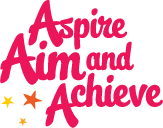Primary
Rio 2016
Children will:
- develop awareness of the venue for the 2016 Olympic and Paralympic Games; and
- explore their geographical relationship with Rio de Janeiro and Brazil.
Cross-Curricular Skills:
Using Communication
Pupils should be enabled to:
- communicate information, ideas, opinions, feelings and imaginings, using an expanding vocabulary; and
- develop, express and present ideas in a variety of forms and formats, using traditional and digital resources, for different audiences and purposes.
Using ICT
Pupils should be enabled to:
- talk about, review and make improvements to work, reflecting on the process and outcome and consider the sources and resources used, including safety, reliability and acceptability; and
- investigate, make predictions and solve problems through interaction with digital tools.
Thinking Skills and Personal Capabilities:
Working with Others
Pupils will:
- listen actively and share opinions; and
- adapt their behaviour and language to suit different people and situations.
Thinking, Problem Solving and Decision Making
Pupils will:
- justify methods, opinions and conclusions; and
- examine options and weigh up pros and cons.
Connected Learning Opportunities:
PE
Pupils make links with the practical aspects of their athletics, games, gymnastics and swimming programmes that are more fully outlined in the Physical Education part of this resource.
The World Around Us
By investigating sustainability issues, pupils will have an opportunity to develop knowledge, understanding and skills in:
- our place in the universe; and
- positive and negative effects of natural and human events upon a place over time.
Activity
The children will find out about Brazil and Rio de Janeiro location of the 2016 Olympic and Paralympic Games, in a connected learning activity which includes Brazil’s geography, history and culture.
Rio 2016
Find out more about Brazil and Rio de Janeiro
Remind the class that Rio de Janeiro, Brazil is the location of the 2016 Olympic and Paralympic Games. Ask the children to work in 3 groups and allocate one of the topics below to each group. They can use the links provided to help with their research.
Where is Brazil?
Find Brazil on a map of the world.
Find Rio de Janeiro on a map of Brazil.
How far is Rio de Janeiro from Belfast?
What is the population of Brazil?
What is the population of Rio de Janeiro?
What is the temperature in Rio in Summer/Autumn?
Life in Brazil
What language is spoken in Brazil?
Why is this language spoken in Brazil?
What is the currency/money used in Brazil?
How much is it worth in pounds (sterling)?
What is a flavela?
What is Brazil’s favourite sport?
Name some of the most famous players of Brazil’s favourite sport.
What do samba schools do at carnival time?
Brazil is special
How many new animal species are found every year in Brazil?
How many plant species are there in Brazil?
What is Brazil’s largest river?
Why is the Amazon Rain Forest under threat?
How much of the Amazon Rain Forest disappears every year?
Why is it important for the whole world?
Ask each group to present what they have discovered to the rest of the class.
Some of this content could be included in a class presentation on the Olympics to the whole school on school Sport’s Day.
Human athletes v the animal kingdom
Use the www.arkive.org short fun quiz with the class which gets them thinking about faster, higher and stronger and comparing what human athletes can achieve with the athletic prowess of the animal world.
Learn a song from Brazil
This activity could be rounded off by learning a song from Brazil, ‘Peixe Vivo’ which you can find on the British Council website. Roughly translated it means ‘How can a live fish live out of cold water? How can I live without your company?’ and can include actions, choreography and percussion.
You will need:
Access to the internet
An interactive whiteboard
Rio 2016www.rio2016.com
Peixe Vivobritishcouncil.org

